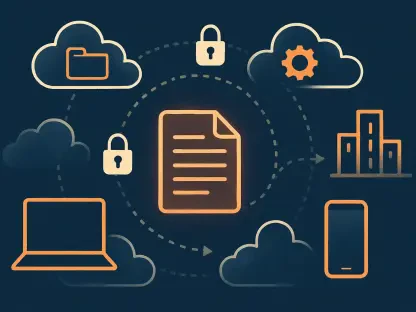In today’s fast-paced world, where data is often hailed as the new oil, the realm of journalism faces an exciting yet daunting challenge: transforming raw data into engaging stories that captivate and inform the public. As the digital landscape continues its relentless expansion, the significance of data-driven storytelling has surged, requiring journalists to hone not just their analytical skills but also their narrative abilities. The fusion of numerical insights with the art of storytelling has become more than a mere trend; it is now an essential component of effective journalism. This guide presents a carefully curated summer reading list, designed specifically for data journalists who are eager to bridge the divide between impersonal numbers and compelling narratives. By delving into these books, professionals can enhance their technical capabilities while simultaneously cultivating ethical sensitivity, strategic thinking, and creativity.
Expanding the Horizons of Data Journalism
Merging Empathy With Numbers
In the contemporary landscape of journalism, the traditional role of a journalist is being profoundly reshaped by the growing importance of data storytelling. No longer confined to merely presenting factual data, journalists are now tasked with infusing stories with empathy to foster a deeper connection with audiences. Books in this reading list aim to illustrate how figures can be transformed into narratives that resonate with human emotions, giving numbers a pulse and presence. By engaging with these works, data journalists can learn how to craft stories that draw readers into diverse human experiences. One prominent work that delves into this concept is a compelling exploration of the significance of empathy and emotional engagement in storytelling. This book makes a persuasive argument for the incorporation of emotion as an essential element in conveying complex data. Readers are guided through an examination of how statistics can be contextualized to represent struggles and triumphs, reflecting the resilient spirit of individuals and communities. As data journalism continues its evolution, understanding the delicate balance between data precision and emotional resonance becomes crucial, presenting storytellers with an opportunity to create impactful narratives.
The Interdisciplinary Approach to Storytelling
As data journalism transcends traditional boundaries, journalists are encouraged to embrace an interdisciplinary approach that integrates insights from various fields. The books recommended in this reading list underscore the value of drawing from disciplines like sociology, marketing, and the arts, alongside the technical realms of data science. This holistic methodology enriches storytelling by providing multifaceted perspectives, ultimately making data journalism more relatable and comprehensive, catering to a broad range of societal contexts. By breaking free from conventional constraints and tapping into diverse sources of inspiration, data journalists can enhance their narrative prowess. This interdisciplinary approach empowers reporters to explore deeper layers of stories, encouraging them to engage audiences by relating data to everyday human experiences. By fostering collaborations with experts from different domains, data journalists can create narratives that captivate and educate, allowing a greater understanding of the complexities of the world.
Bridging the Gap Between Numbers and Narratives
Techniques in Data Visualization
The art of storytelling extends beyond written words, and data journalists must master visual storytelling mechanisms to effectively convey their narratives. The books handpicked for this reading list provide various techniques and strategies to transform raw data into compelling visual representations. From simple charts to intricate artistic creations, these visualizations have the power to make data both intellectually accessible and emotionally engaging. By harnessing these tools, data journalists can craft stories that resonate with audiences on multiple levels. One noteworthy exploration within this realm examines the critical role of data visualization techniques, explaining how visual elements enhance storytelling impact. These works offer practical guidance for creating visually appealing graphics that captivate the reader’s attention while ensuring clarity and accuracy. By providing concrete examples and case studies, these books equip journalists with the skills needed to bridge the gap between raw data and compelling narratives. The integration of visuals enriches the storytelling process, enabling audiences to grasp complex concepts intuitively.
Global and Cultural Dimensions
Through a global lens, data journalism can offer a rich tapestry of stories that embrace cultural diversity and societal variation. The reading list curated for data journalists emphasizes an inclusive approach, drawing from books that provide cross-cultural insights. These works aim to broaden the perspective of journalists by showcasing how data journalism plays a pivotal role in different societies worldwide, revealing both shared challenges and distinctive narratives unique to each context. By understanding the rich tapestry of global perspectives, data journalists can cultivate a more inclusive approach to storytelling. This global understanding fosters cultural sensitivity, allowing journalists to recognize and respect diverse viewpoints while framing stories with authenticity. Through the exploration of international case studies and experiences, journalists gain deeper insights into universal themes, enriching their storytelling repertoire. This exposure to global narratives empowers data journalists to navigate complex societal issues with nuance and empathy.
Ethical and Authentic Storytelling
Navigating Ethical Considerations
In a rapidly evolving digital world where data analytics are increasingly used, maintaining ethical standards in data representation and storytelling becomes paramount for journalists. The reading list underscores the significance of ethical considerations and authenticity, offering guidance on navigating the complexities of data manipulation and the ethical dilemmas faced by data journalists. These books stress the importance of transparency in reporting and ethical responsibility when dealing with sensitive data. Through engaging narratives and real-world examples, journalists are exposed to ethical challenges that they may encounter in their work. The reading list prompts reflection on the consequences of misrepresentation and the role of journalists in safeguarding public trust. Through comprehensive discussions on ethical standards, these works reinforce the need for data journalists to prioritize integrity and credibility. By internalizing these ethical principles, journalists can strengthen their commitment to truthful reporting, ensuring their stories serve the public interest and promote social justice.
The Power of Authentic Narratives
A standout theme within the reading list is the cultivation of authenticity in storytelling, a crucial element that lends credibility and relatability to data-driven stories. Through authentic narratives, journalists can convey the genuine voices and emotions of individuals and communities impacted by data phenomena. These books emphasize the significance of capturing real human experiences, urging data journalists to step beyond statistics and into the realm of personal stories that evoke empathy and understanding. The reading list encourages journalists to engage with works that illuminate the enduring power of authentic narratives, where unusual or unexpected voices find a platform. By weaving personal anecdotes within data-driven frameworks, journalists can create stories that resonate with readers on a visceral level, prompting deeper reflection and dialogue. This approach challenges readers to view data through the lens of lived experiences, ultimately amplifying the message and fostering a sense of connection between storyteller and listener.
Future Trends and Responsibilities
The Dynamic Role of Data Journalists
As the field of data journalism continues to evolve, journalists are now tasked with not only analyzing data but also crafting narratives that advocate for truth and social equity. The reading list highlights the importance of staying technologically savvy to adapt to the rapid advancements in artificial intelligence and digital tools. By striking a harmonious balance between innovation and ethical integrity, data journalists can chart a path that upholds both their professional standards and societal responsibilities. These works provide thought-provoking insights into the dynamic role of data journalists and how they can navigate the challenges posed by emerging technologies. They explore the future of data journalism, where professionals are expected to blend technical expertise with a profound commitment to ethical reporting. By equipping themselves with evolving skills and awareness, data journalists can remain proactive and adaptable in an ever-changing landscape, ensuring their stories continue to inform, inspire, and empower readers.
Pioneering New Frontiers
The reading list concludes with a focus on pioneering new frontiers in data journalism, urging journalists to leverage the transformative potential of data storytelling. The recommended works encourage journalists to explore uncharted territories and embrace creativity while remaining grounded in accuracy and truth. By nurturing a spirit of curiosity and innovation, data journalists can push the boundaries of storytelling, crafting narratives that captivate and challenge audiences in meaningful ways. As the future beckons, data journalists are poised to be the narrators of change, forging a path that unites storytelling with data analysis to create a profound impact. By embracing the guidance and inspiration offered by this curated collection, journalists can refine their craft and contribute to a thriving landscape of authentic, ethical, and empathetic data journalism. The journey of transforming data into stories becomes a collective endeavor, driven by the passion and dedication of those who seek to unveil the human stories behind the numbers.
Forging a New Path Forward
The realm of data journalism has undergone a remarkable transformation, with storytelling now integrated into its very fabric. This reading guide equips journalists with a wealth of insights to navigate this evolving landscape. By exploring the intersection of emotion, ethics, and aesthetics, professionals are empowered to craft stories that transcend mere data points and delve into the complexities of human experience. As data journalism continues to evolve, journalists play a crucial role in shaping narratives that inform, engage, and inspire. The curated collection encourages data journalists to embrace innovation and creativity while upholding ethical standards. It invites them to embark on a journey of discovery, armed with the perspectives, techniques, and knowledge needed to redefine modern journalism. As they explore the narratives hidden within data, journalists are called to amplify voices, challenge perceptions, and contribute to a more informed and empathetic world. The journey of transforming data into stories stands as a testament to the power and potential of journalism in an increasingly data-driven society.









